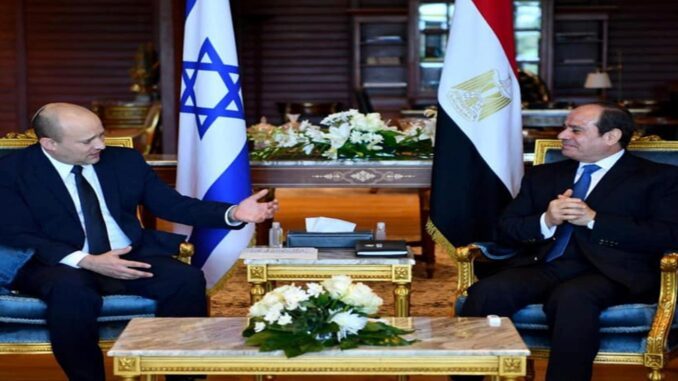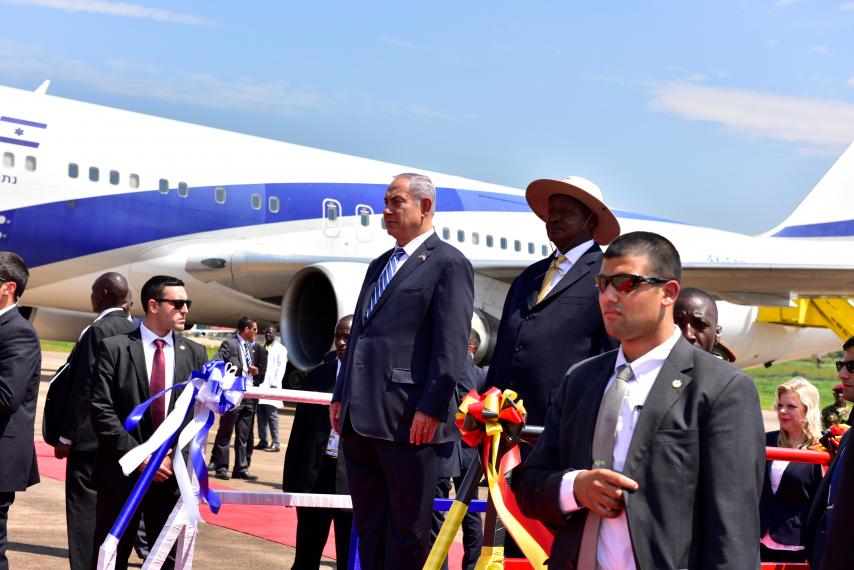
The Israeli government has reportedly approved ‘a special program to strengthen economic relations with Egypt’, reported INSS.
Citing Ofir Winter, a researcher, the Institute for National Security Studies (INSS) reported that the Israeli government last week approved a special program to strengthen economic relations with Egypt
The special program aims to increase trade between Israel and Egypt from $330 million to $700 million over three years, with the exclusion of the export of natural gas and tourism.
The program builds on boosting the rapprochement witnessed in the two countries’ bilateral relations over the past year.
This is manifested in several ways, including: an increase of about 60% in the volume of trade; discussing the expansion of the Qualifying Industrial Zones (QIZ) agreements (i.e. Egypt’s US duty-free QIZ subject to Israeli inputs into the product); increasing Israeli gas exports to Egypt and negotiations with the European Union on further increases; opening a direct flight between Tel Aviv and Sharm El Sheikh; and mutual visits by ministers and business delegations.
The plan includes steps to develop the infrastructure that supports trade relations between countries, especially the development of the Nitzana border crossing and the transportation leading to it.
In addition, Israel is interested in the continuation of the activities of the Joint Trade and Agriculture Committees, which were established in the early years of the peace, but over the years ceased to convene.
At the heart of the program are areas at the forefront of Egyptian priorities, such as water resource development, irrigation, desert agriculture, aquaculture, renewable energies, and prevention of seawater pollution.
The plan is based on several supporting concepts:
- First, the diversification of the two-state relations through the contribution of a number of Israeli government ministries to their development, including energy, economy, industry, and transportation.
- Second, the aspiration for “long-term and broad commitments” between companies and government agencies of the two countries, which would deepen the roots of peace.
- Third, the realization of complementary advantages for economists, including the import of raw materials, vegetables and food products from Egypt to Israel, and the export of technologies from Israel to Egypt.
- Fourth, exploiting the trust that prevails between the political-security levels in the two countries and transferring it to the economic level.
The plan comes in the wake of Egypt’s increasing openness to economic normalization with Israel, which aims to develop new growth engines.
In addition, changing international and regional conditions, from the Russian invasion of Ukraine to the Abrahamic agreements, are giving the two countries new opportunities to expand their relations in areas such as tourism, energy and climate.
So far, this trend has not encountered internal protests in Egypt, and some unions of businessmen are even involved in strengthening relations with their Israeli counterparts.
However, the road to realizing the full economic potential of interstate relations is still long, and requires more freedom for private initiatives, the removal of bureaucratic barriers on both sides, and facilitation of the movement of people and goods between states.
“In addition, efforts must be made to improve the way relations are publicly portrayed in public opinion, especially in Egypt, to reflect government support for their expansion, encourage economic sectors to respond to them, and increase public appreciation in both countries to harvest the fruits of peace between the two countries,” reported INSS, citing the researcher Ofir Winter.



